
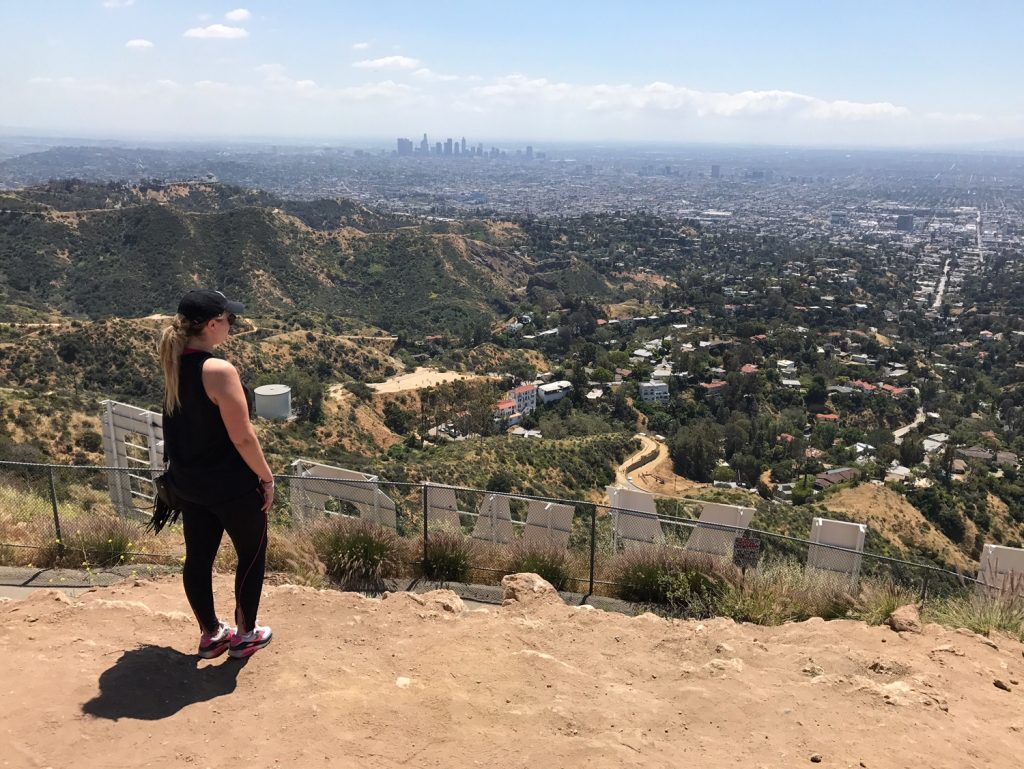




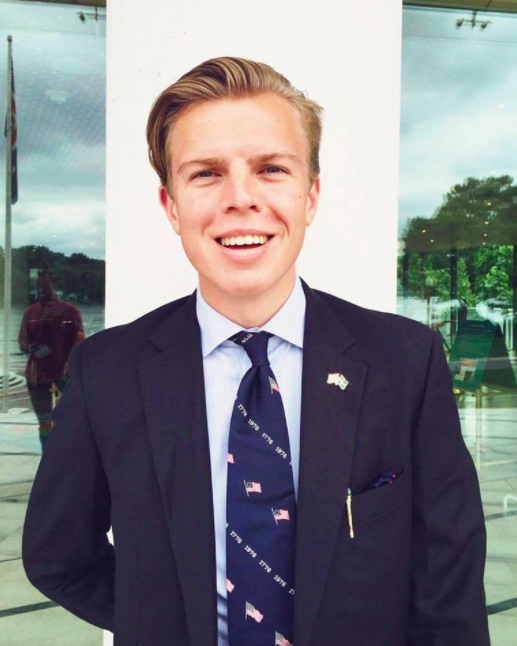
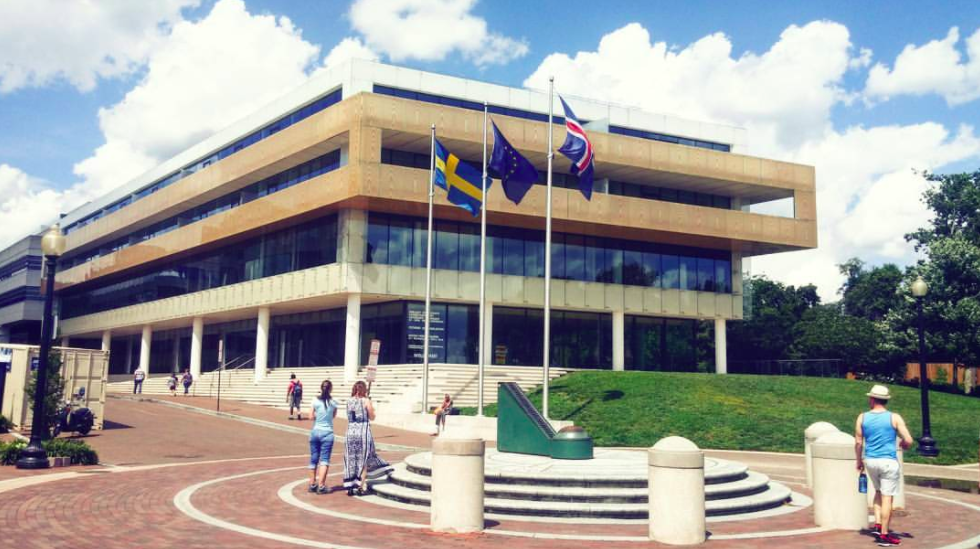

Editor’s note: By August 14th 2017, Andreas will begin his internship at the office of house majority leader Kevin McCarthy.
It is easy to do an internship in the U.S. If you want to do an internship in the U.S, you need to obtain a J-1 Exchange Visitor visa. But first, you need to find an internship, either on your own or with the help of an organization such as the Swedish-American Chambers of Commerce, who lists internships and can help you get your visa.
To find an internship, you should search and actively apply for any position that interests you. Contact companies and organizations with your resume written in English ahead of time, usually several months prior to the date you wish to start you position. Take into consideration that the visa processing time is about 8-14 weeks, and that organizations usually accept applicants only for fall, spring and summer positions. However, once you agree with your host organizations on doing an internship there, you will need to obtain your J-1 visa.
With a J-1 visa you are able to:
Requirements for Intern Category:
Requirements for the Trainee Category:
To apply for a J-1 visa, you will need to:
To be issued the DS-2019 document, you must send all necessary documentation and receipt of SEVIS fee to your visa sponsor. Your visa sponsor also needs the Internship/Training Placement Plan (DS-7002), Training Offer and service fee from the host company. You will not be able to book an appointment at the U.S embassy until the DS-2019 has been issued.
The waiting time for an appointment at the U.S. Embassy in Stockholm ranges from a few days to several weeks. July and August are usually the busiest months. Current waiting time is available on the U.S. Embassy website.
Fees and Costs
Visa Interview Fee
The trainee is required to pay a fee to the U.S. Embassy in Stockholm or Helsinki before the interview. The fee due to change over time so make sure to check the Embassy’s web page for current Exchange Visitor fee, http://sweden.usembassy.gov/consulate/niv/visa.html. Read the instructions carefully, including the information about paying the fee. An original receipt, stamped by the bank, should be brought to the interview at the embassy.
SEVIS Fee
The trainee is required to pay the so called SEVIS fee of $180. The SEVIS fee is paid directly to the Department of Homeland Security, https://www.fmjfee.com/. This payment is made online. Make sure to print a receipt to bring to the interview.
Insurance
The trainee candidate is required to have health and accident insurance that meets the requirements as you may find on SACC-USA’s website.
Compensation
The trainee or intern usually covers costs associated with travel, housing and living expenses but can often times also be covered by the host company to some extent. A Trainee Program Participant is allowed to receive compensation/stipend under a J-1 visa.
Many companies pay a stipend to cover living expenses but others may be unpaid. If you are Scandinavian, a good option is to do an internship with anyone of the 20 regional chambers of the Swedish-American Chambers of Commerce. Positions with SACC Regional Chambers are usually unpaid.
Internship for Academic Credit
To finance an unpaid internship, some Swedish Universities offer distance courses for academic credit (CSN-eligible). Find an internship and then you get it approved as a course of study. Unpaid positions may be best suitable for students who are required to do an international internship as part of their course work and thus can get a student loan.
Scholarships
There are good possibilities to seek and receive individual funding from external resources. Most scholarship foundations have some prerequisites about place of birth, heritage, etc. The best way to find these scholarships is for the trainee to contact the City or County Council or banks in your hometown or city of residence.
For official information regarding the J-1 Exchange Visitor visa, please visit: http://www.ustraveldocs.com/se/se-niv-typej.asp
For internships, visa sponsorship and guidance, please visit: http://sacc-usa.org/trainee/
F-1 Visa and Optional Practical Training
A second option for doing an internship in the U.S is for students on a F-1 visa. It is possible to receive up to 12 months of Optional Practical Training, referred to as OPT, if the employment is directly related to your major area of study.
Types of OPT
All OPT must be directly related to the student’s major area of study. Students may participate in OPT in two different ways:
Pre-completion OPT: F-1 students may apply to participate in pre-completion OPT after they have been enrolled in school for one full academic year. Students authorized to participate in pre-completion OPT must work part-time while school is in session. They may work full time when school is not in session.
Post-completion OPT: F-1 students may apply to participate in post-completion OPT after completing their studies. Students authorized for post-completion OPT may work part-time (at least 20 hours per week) or full-time.
Please Note: Practical training may be authorized to an F-1 student who has been lawfully enrolled on a full time basis for one full academic year at a college, university, conservatory, or seminary that has been certified by the U.S. Immigration and Customs Enforcement (ICE) Student and Exchange Visitor Program (SEVP) to enroll F-1 students. The “one full academic year” requirement may be satisfied while in another nonimmigrant category, not just while in F-1 status. Students may participate in OPT both before and after completing their studies. However, all periods of pre-completion OPT will be deducted from the available period of post-completion OPT.
STEM OPT Extension
Students who have earned degrees in certain science, technology, engineering and math (STEM) fields may apply for a 24-month extension of their post-completion OPT employment authorization if they:
Are an F-1 student who received a science, technology, engineering, or mathematics (STEM) degree included on the STEM Designated Degree Program List (PDF),
Are employed by an employer enrolled in E-Verify, and
Received an initial grant of post-completion OPT employment authorization based on their STEM degree.
Applying for OPT
Generally, if you are an F-1 student who wants to apply for OPT, you must:
Request that your designated school official (DSO) at your academic institution recommend the OPT. Your DSO will make the recommendation by endorsing your Form I-20 and making the appropriate notation in the Student and Exchange Visitor Information System (SEVIS).
Properly file Form I-765, Application for Employment Authorization with USCIS, accompanied by the required fee and the supporting documentation as described in the form instructions.
Elin Johnsson, 27, from Stockholm, came to New York in 2010 to attend Berkeley College in New York and recently received her Master’s degree in Media Management from The New School.
Elin is currently living with her little sister in New York’s Upper East Side and excited to start her new career here in the U.S.
Our interviews are sparsely edited to keep the authenticity of everyone’s story.
When was the first time you knew you wanted to study in the U.S.?
I and my best friend had worked hard and saved up money for a big vacation. We decided to rent an apartment in West Village, New York for one month to explore a new city, but mostly because I had never been to New York. It was love at first sight, fashion, people, history, nightlife, food etc. and we both decided that we wanted to apply for College in the city to start a new venture. I actually never had a plan to study abroad because I always had a hard time learning English in school, and I can honestly not say what changed my mind to start an education in English but I remember that I didn’t want my English barrier to stop me from doing something I really wanted, and I always liked to challenge myself.
What was the first step you took to realizing your American dream?
I researched different colleges, contacted them, compared tuitions and scholarships, reviews, locations etc. I also got in touch with KILROY in Stockholm and they helped me to find the right college for me and they guided me through the whole application process and helped me to apply for a student visa.
Why NYC?
I simply fell in love with the city and it felt right. I could never, for example, had studied in LA because I love the different seasons, when it switches from Winter/Spring, Summer/Fall, I could not have lived without it.

Tell us about the process of getting your student visa?
It is a long process that takes time and effort, and being organized and informed is a must. As mentioned, I got assistance from KILROY in Stockholm to apply for my student visa and I highly recommend their service.
How do your days look like at the university?
I just graduated this May from The New School with a Master Degree in Media Management and I am currently seeking a job in the field I studied. A normal day at the university would start with working at the Alumni department at the New School where I worked as a student worker assisting the Alumni department. I usually started at 9 am and worked until 5 pm, and my tasks varied from answering questions from recent graduates regarding their alumni benefits, guidance, access to the university etc. to managing social media sites, email accounts, designing posters, planning events, attending events and more. I had my classes during the evening, but only 3 times a week. The other 2 days a week and weekends were mostly dedicated to studying, but I also managed my time to take a break and have fun with friends.
 The New School
The New School
How did you find housing?
It is very hard as an international person to find housing in New York. Landlords want security and usually ask for multiple security deposits from international people in order to rent an apartment. I contacted a real estate broker who helped me to find a place on the Upper East Side and I “only” had to pay two security deposits (one is mandatory).
What’s the best thing about living in New York?
The people and the culture. Chivalry is not dead here, people are polite, saying sorry, please and thank you. Also, it feels like nothing is impossible here.
Which are your favorite places in NY?
Union Square, because it is the first area I explored when I first came here and because it is where I went to school. I spent a lot of time around Union Square and I have so many memories.

What do you want to do in the future?
I want to stay and work in the US for now, but I am not sure about the future because I have my family in Sweden and I love Sweden. The ideal situation would be a combination of living in both Sweden and US.
What’s the biggest difference between Sweden and USA?
Again, the people and that chivalry is not dead. People say hi, are polite holding doors and wishing you a great day at the grocery store. Also, people go to dates here! I had honestly never been on a date before I came to the US, and I still remember how strange and how uncomfortable I thought it was, in the beginning, to go out and have dinner with a guy I barely knew.
Amanda Erlandsson is 24 years old and came to the USA for about 2 years ago to study Fashion Design at Beverly Hills Design Institute. Amanda moved from a small city in Sweden called Oskarshamn and moved to The City of Angeles in 2015. Amanda started off as a freshman in September 2015 and has now been pursuing and practising her dream of becoming a fashion designer.
Our interviews are sparsely edited to keep the authenticity of everyone’s story.
When did you decide that you wanted to study in the US?
I believe the first time I knew I wanted to study in the USA was in my second year of High School. I got a huge interest for fashion and I just felt that I wanted to turn that interest into a career. I have always liked to draw, ever since I was a little girl and to be able to put together a passion I’ve had since being a kid and the passion I now have is fantastic! Why not work with something you love and have a passion for? Although, the dream of USA has been on my mind since I can remember. I saw the movies and wanted to live like it, easy as that and now I do.

What was the first step you took to realising your American dream?
I had studied in San Diego for 5 months in 2013 so that was the first time I had to deal with all the paperwork that comes with moving/applying for school in the US. So this time I knew what to expect and I didn’t want to miss any important paper. I don’t trust myself with many papers, I have my Mom for that. However, I contacted an organization called Study International which is a company that helps you with all the paperwork and the applying to the school. They make sure everything is handled correctly. Since there is an application fee and you have to pay tuition before you get there, I felt safe having them handle it. As easy as that, I turned for assistance at Study International and that has helped me a lot.
Why LA?
To be honest, LA was not my first choice or the city I was thinking of moving to at first. I was at first interested in New York, the fashion city of the US. Although, after a lot of thinking I finally decided to go big and move all the way over to the west coast. To Los Angeles. And why? Because I did not only come to study fashion, I also came to get the ultimate lifetime experience. I thought that New York was a bit closer to the way Sweden is and that LA is very different from that. Which sounded pretty interesting and I’ve always been curious about California, ever since I watched O.C with my sisters. I also thought about it fashion wise. LA fashion differs a lot from Swedish and I saw it as a challenge, not choose the easy way rather than to challenge myself.
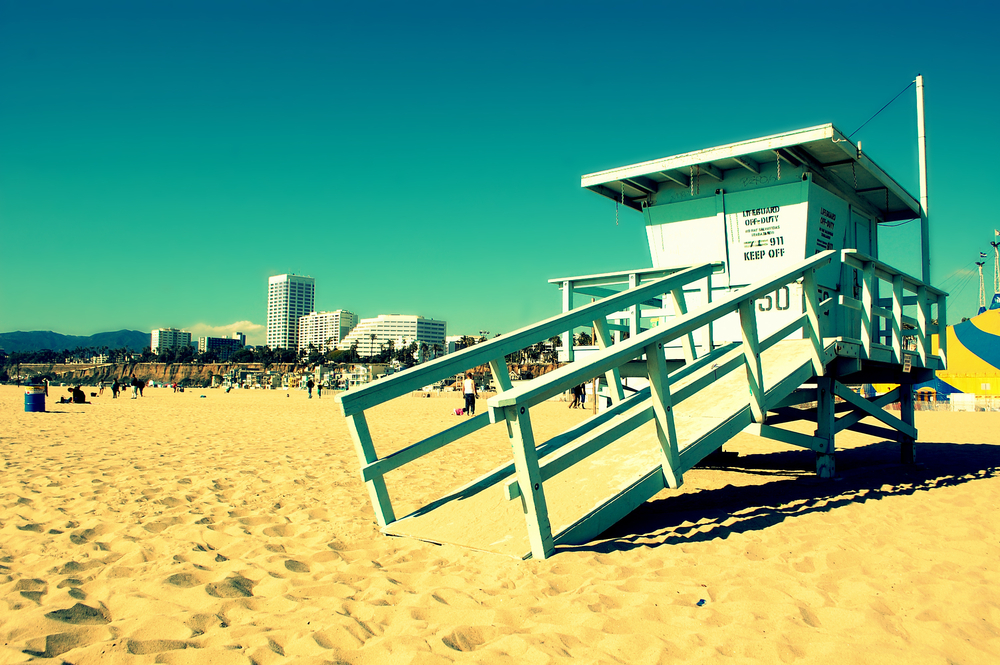
Tell us about the process of getting your student visa?
I first needed to be accepted to my school and once that letter was received I was able to book an interview at the American Embassy in Stockholm. The actual interview is the shortest and quickest interview I’ve ever had. It’s the wait inside of the embassy that takes such a long time if there are many people ahead of you. After my interview, it took about three weeks and I got a letter sent to me with my passport and my visa posted inside of my passport.
How does your days look like at the university?
My schedule changes every 11th week since we are doing quarter system. However, I take 12 credits per quarter and that is about 5 different classes. Every class is three hours long and the school puts your classes together. I have both fashion oriented classes and general courses. Our school is very small so I don’t stick around there that much unless I have classes or some work that needs to be done.
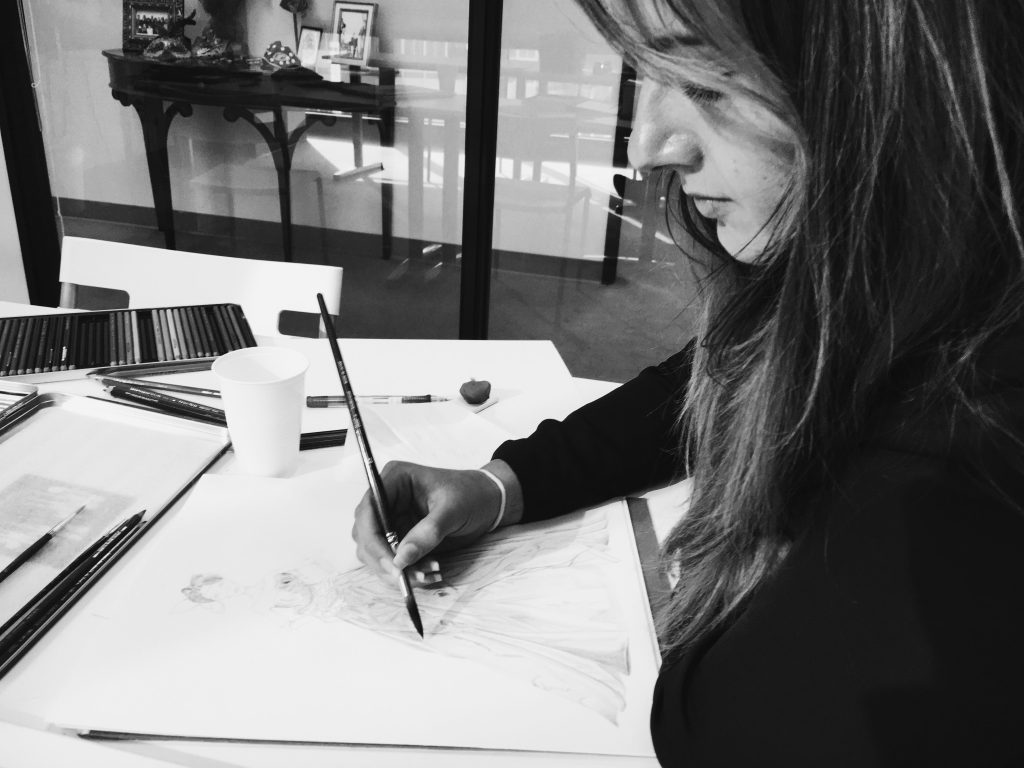
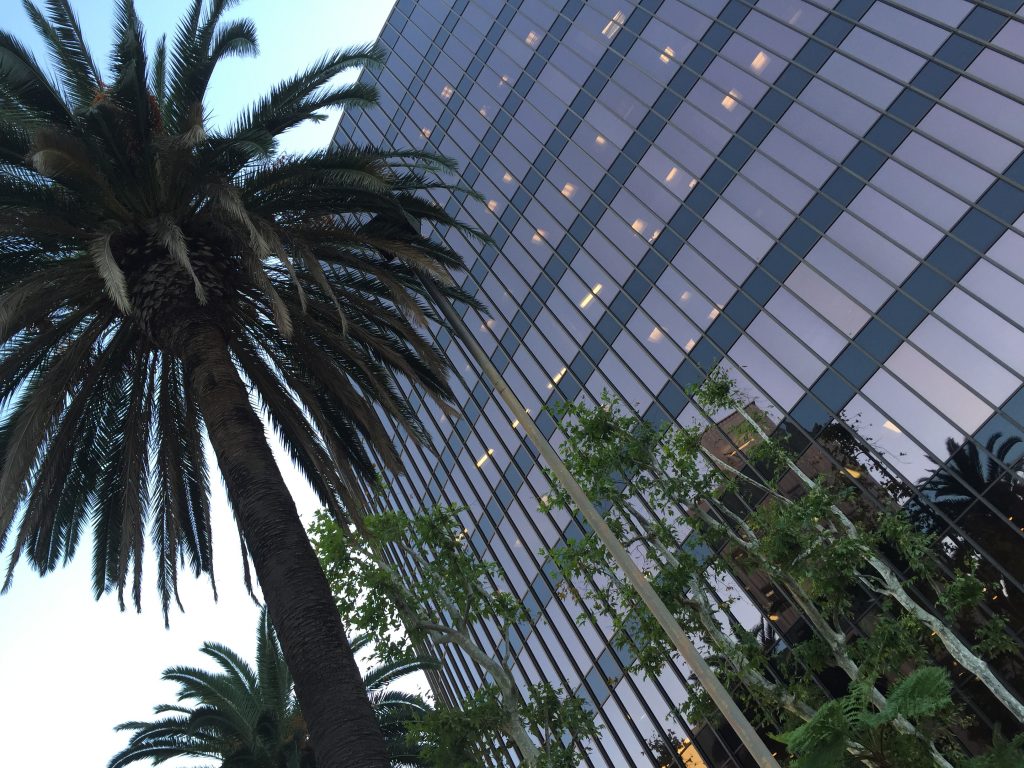
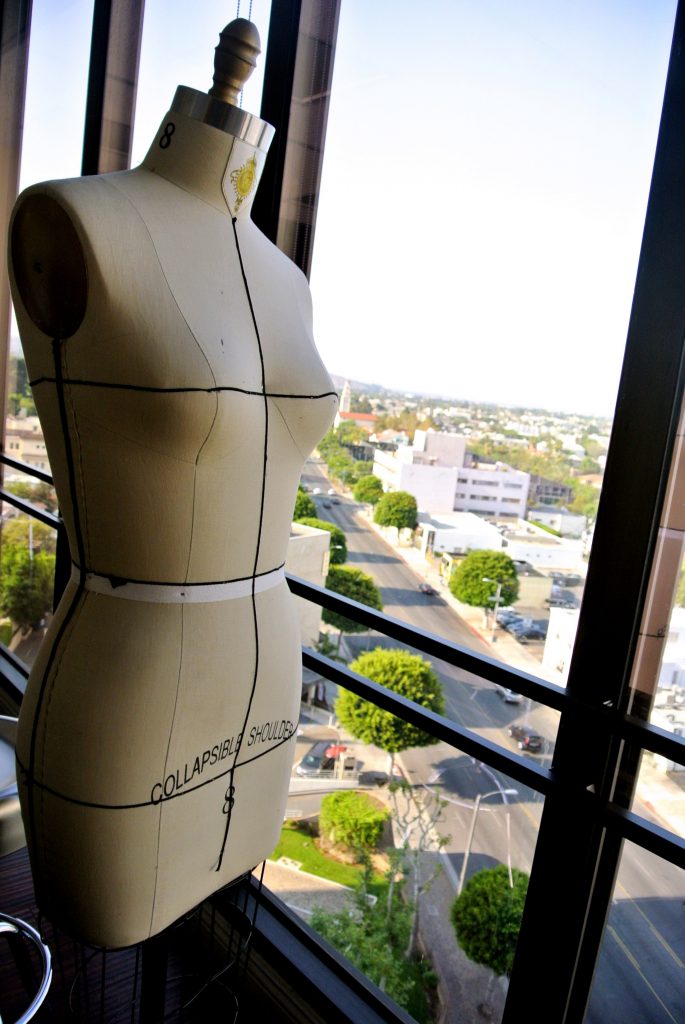
How did you find housing?
I have been moving around a lot. My first room was in Beverly Hills and I got that through some help from the school. Although, they don’t offer a campus, so it was only temporary but a good start being completely alone in a big city. I later had a hard time finding affordable apartments and nice roommates.
After a long search, I finally found my first roommate. I actually found her on a Facebook page called ‘’Los Angeles Housing & Roommates’’. We were both looking for apartments so we started searching together and with very much luck we got one in Hollywood. I lived there for a year and then temporarily moved in with my Swedish friend in Burbank. We lived there for about 2 months but it is too far from my school so I needed to move back to the Hollywood area. We found the place I now live in and I like it a lot, it’s close to everything.
My number one recommendation is to try finding a place that you can live in for as long as you need and if you then, later on, realize that you want to change to another neighbourhood, then do. Because I’ve hated not having a place for certain, it’s been so stressful.
What’s the best thing about living in the USA?
The possibilities, for sure. There are so many possibilities here that are not available in any other country and I think that is pretty cool. For me living in LA, I love that LA has so many different places to offer. If you want a city, you have downtown, if you want the beach, you have the entire coast. If you want nature, you have all the hiking trails. If you want crazy nightlife, you have Hollywood. It’s just for you to pick!

Favourite places in LA?
Malibu, I love Malibu. It’s so nice over there with their beaches and all their really nice restaurants. Laguna Beach, it’s a bit further down south. It’s so cute down there and I just love the vibe. Mama Shelter is an amazing rooftop here in Hollywood and they have decorated it with such ´homie’’ feeling. They also have a view of the Hollywood Sign.
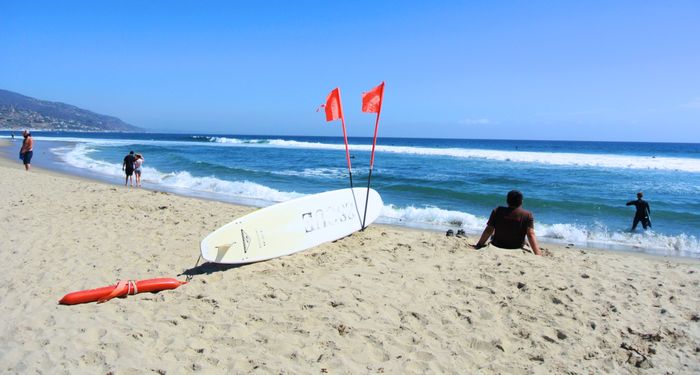
What do you want to do in the future?
I want to start my own company and start my own designer brand.
What’s the biggest difference between Sweden and USA?
I don’t know about the rest of the US, but here in LA the work ethic is not the same as in Sweden. Things don’t happen as quickly as back home. It’s harder to rely on someone here.
People-wise. The Americans open up to you much faster, it takes a longer time to get to know a Swede than it does to get to know an American. I’m not sure wether one or the other is better, but I think they both have its advantages and disadvantages.
If you want to follow our very own editor Amanda’s adventure’s in Los Angeles, you can follow her blog here >>>

Los Angeles
Who hasn’t ever dreamed about the City of Angels, Los Angeles? Simply feeling the Californian breeze while cruising down the 101? Partying next to Justin Bieber? Sipping champagne in Hollywood Hills with the view over the city? I sure had those dreams two years ago, and now I’m living it. Here is my guide to LA, and all my best tips on what to do when you are in the city.
Let’s start along the coast.
Santa Monica Pier and Venice Boardwalk are two places you most likely have heard of. For all first timers in LA, I recommend a visit to these two places, although it’s usually pretty crowded since they’re hot tourist spots. So while there, why not make the best of it and rent pink bikes in Santa Monica and bike to Venice right next to the beach. A perfect Instagram moment! My favourite beaches are Paradise Cove in Malibu, Manhattan Beach, Laguna Beach and Redondo Beach. I like them because they are cleaner, have more character and privacy than Santa Monica or Venice.
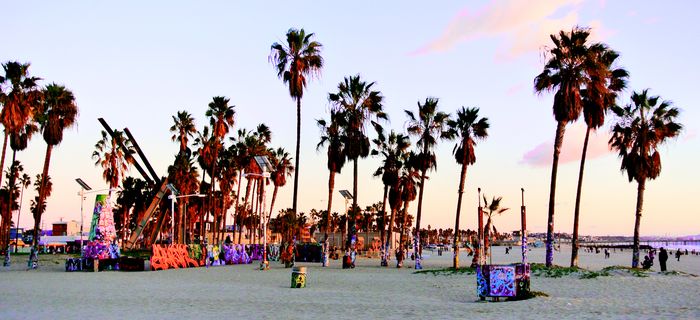 Venice Beach
Venice Beach
 Santa Monica
Santa Monica
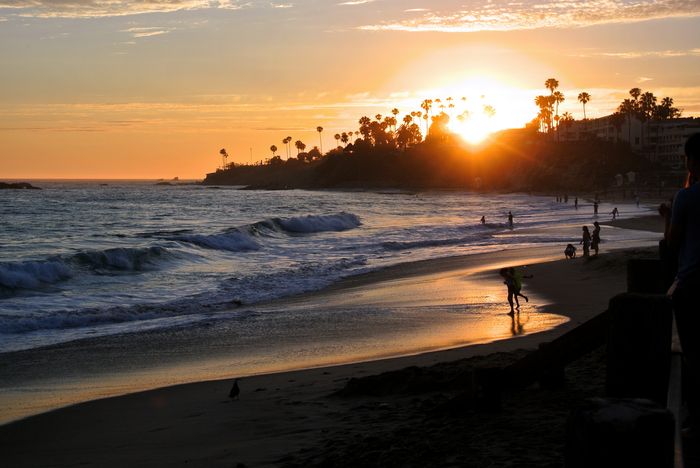 Laguna beach
Laguna beach
Road tripping is one of my favourite things to do here in California. There are so many beautiful places to explore. The most amazing thing I’ve ever done here was driving up along Highway 1, starting from Malibu and going all the way up to Big Sur. You are literally driving right next to the Pacific Ocean and the Californian breeze I spoke about earlier is real here. Once you are in Big Sur you can visit many of the viewpoints there. You can go hiking on one of the hiking trails or enjoy a lovely dinner at one of their many restaurants along the road.


Are you looking for that cool desert experience that you’ve seen so many times in movies? Then I would definitely recommend you to take a trip to Palm Springs or Joshua Tree. In Palm Springs you could try out one of their many spa’s, or check into one of their luxurious hotels and enjoy the desert heat by the pool. In Joshua Tree, it’s all about nature, the amazing desert nature. If you are interested in taking cool pictures, Joshua Tree is the place to go. Many people go there to get away from the stressful city life for a while.
Let’s move it to Hollywood, the home of stars…

I live in Hollywood and I have spent most of my time in LA, here. It’s hard to explain Hollywood to someone who hasn’t been walking the streets of Hollywood. It has so much character. Things are always happening and you won’t get bored, that’s for sure.
One thing that I always tell visitors that are coming here to not have too big expectations about Hollywood. It’s just not the same as in the movies, which I know, many are hoping for. Actually, I think everyone’s first thought about Hollywood probably would be ‘it’s dirty‘ and yes, it sure is, but it also lives up to the word entertaining. Hollywood IS fun! You have all the great clubs here like One Oak, where there’s a big chance you might party right next to a big celebrity. The Warwick, which has more of a cosy feeling to it. The Villas, which is Leonardo Dicaprio’s go to, and many more great clubs and bars.
I personally also like SkyBar at Mondrian and Ysabel, which are more intimate and sit-down-with-a-glass-of-chardonnay type of venues. Hollywood also has many great Sunday pool parties, such as the pool party at the Roosevelt Hotel and at The W Hotel.
While here, you can’t miss the well-known ‘’Walk of Fame’’, which is on Hollywood Boulevard. It’s a really fun street and besides finding stars of legends, you will also experience all other kinds of Hollywood craziness. There is just so much entertainment along the street, and if you are lucky there might just be a red carpet event going on which is a big score for celebrity spottings.
If you’re starting to get a bit hungry while on your Hollywood adventure, stop by Fig and Olive or Madera.
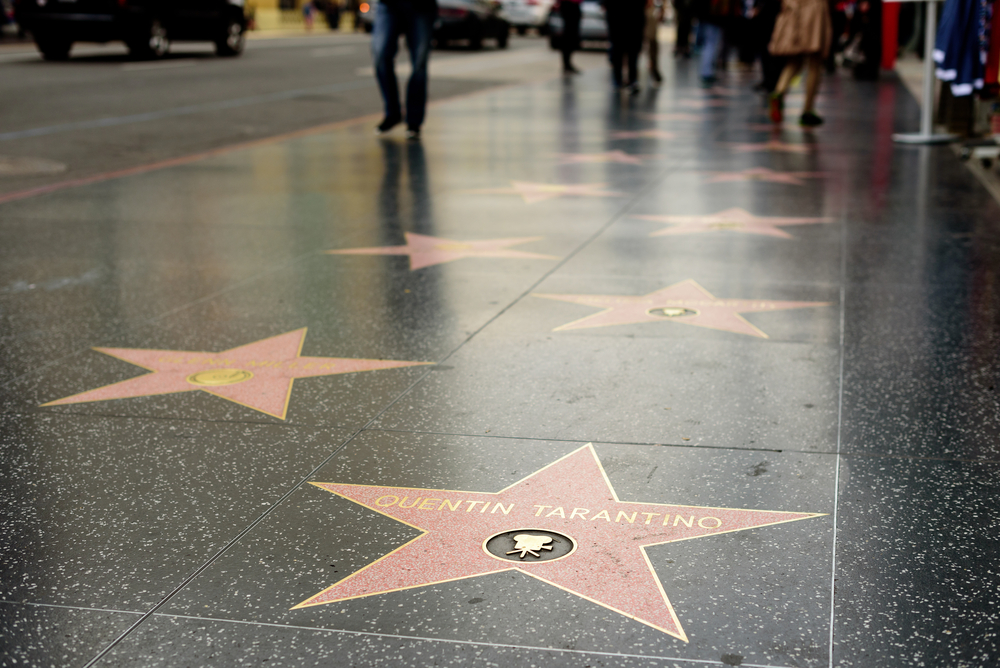
90210, recognise the zip code? If you guessed Beverly Hills then you are absolutely right. This is considered to be the home of the very rich and the very famous. You will also find their favourite shopping street, Rodeo Drive, where you can indulge in all the high-end fashion brands like Chanel, YSL and Gucci. That street is where Julia Roberts goes shopping in Pretty Woman, a very well known scene.

Downtown LA is a part of Los Angeles that many people probably overlook simply because they don’t know what to do there. Let me convince you that DTLA is definitely worth a visit. I started liking DTLA more and more when I managed to find the right places there. Unfortunately, many of the streets look pretty sketchy and are not too welcoming. But what I enjoy most about DTLA is the rooftops. I really like the rooftop of the Ace Hotel. You get a great view over the city, white string lights above your head while enjoying a nice cocktail together with great music. I also recommend the Standard Hotel. They have an amazing pool on their rooftop, which gives you this incredible view while enjoying life in the pool.
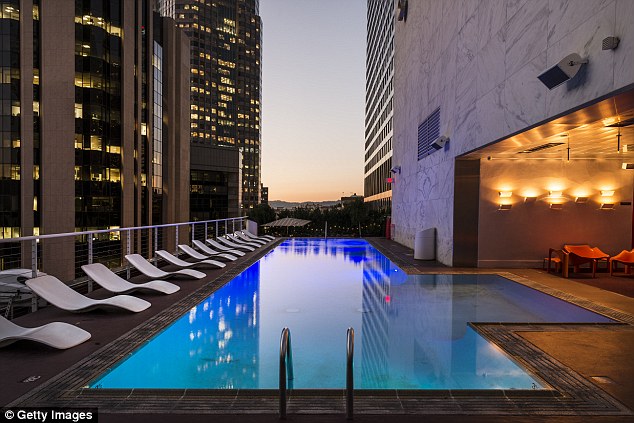
The Standard Hotel
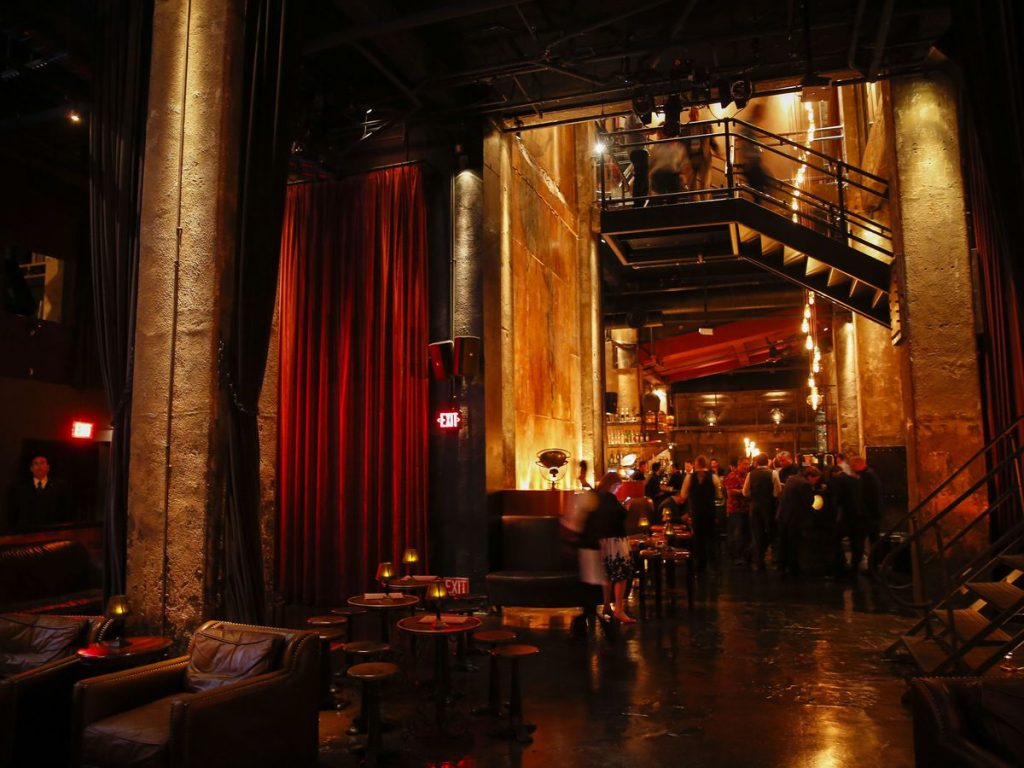
The Edison
One bar that I love down in DTLA is The Edison. It’s such a cool place, it’s a remodelled Nuclear Power Station and they have kept some machines from it as part of the interior, which looks cool. Downtown also offers a great range of good restaurants and one of my favourites over there are Zinc Café and Market. Best fries in L.A! There are so many more restaurants over there that I haven’t tried out yet, but really need to. So not only should you explore more of DTLA, but so should I!
Are you looking for the best view over LA? Then without hesitation, it’s Griffith Observatory you have to visit. I personally like the view better when it’s dark outside. Have you seen LA LA LAND? If so, then you will recognise Griffith Observatory in a heartbeat. Ryan Gosling and Emma Stone are seen singing and dancing right in this spectacular setting.

How about the museums? Personally, not a big fan but The Broad in Downtown blew me away. They have contemporary/modern art and street art, which I found to be very cool. They also have this spectacular thing called a rain room that is a perfect setting for cool photos. It is definitely worth going to and this is a recommendation from someone who usually refrains from visiting museums. It’s very popular, so you have to reserve tickets beforehand to get a spot.
I love food, so trying out new restaurants and cafés is something me and my friends are always up to. In Venice, you just can’t miss out on Butchers Daughter. If you’ve been to the one in New York, you can understand my excitement when they decided to open a restaurant in LA. To make things even better, it’s located on Abbot Kinney Boulevard, which is my favourite street right now, it’s so cute! On Abbot Kinney you can also find Greenleaf, which is a great place. I highly recommend ordering their avocado/pesto dip with sweet potato fries. For all the cheese lovers, Forma in Santa Monica is the place for you. It’s a cheese bar with everything from cheese platters to very cheesy dishes.

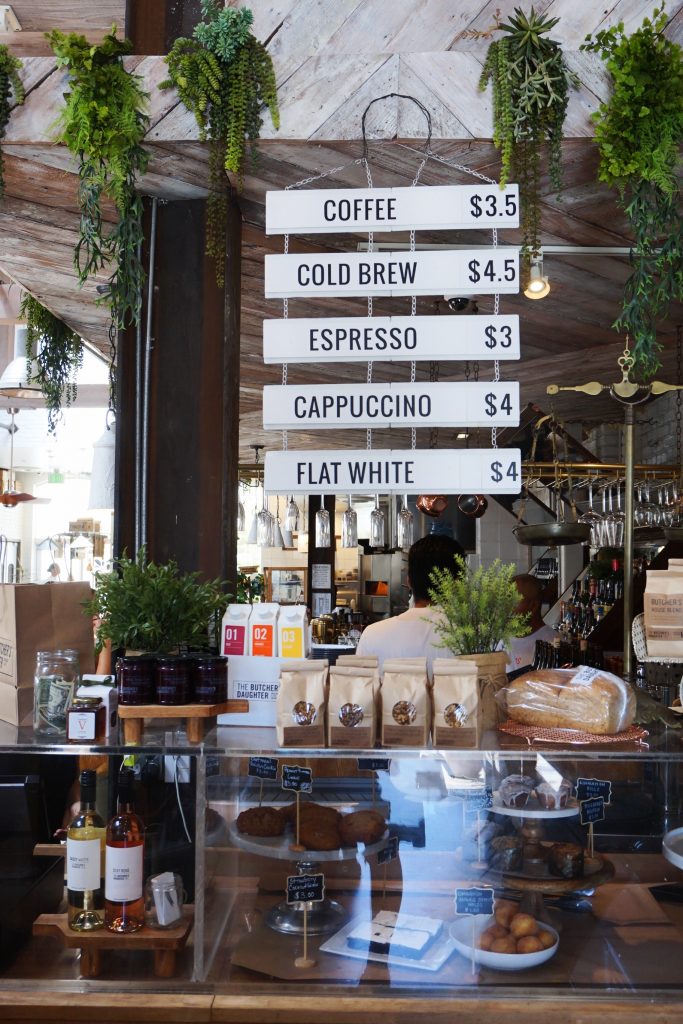
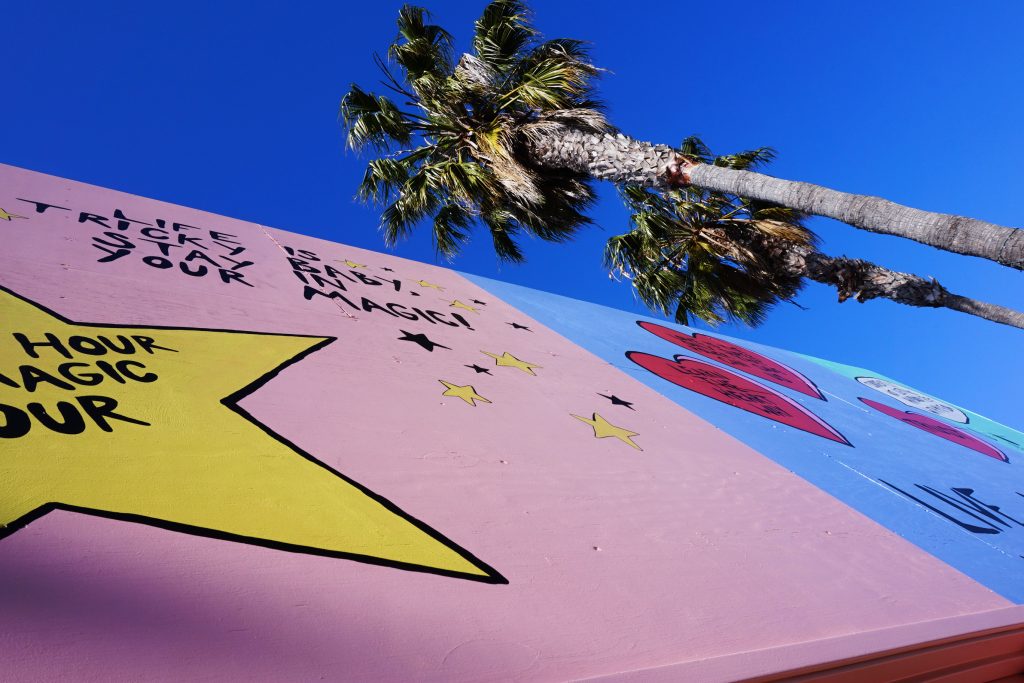
For all my vegan friends out there, I got three great places for you to try. By Chloé in Silverlake, Fala Bar in Venice or on Melrose Avenue and Gracias Madre in West Hollywood. I’m not a vegan myself but I love these places. Their food is amazing!
You haven’t experienced the true LA life if you haven’t gone hiking in one of their many hiking trails. There’s Runyon Canyon in Hollywood where you can spot celebrities hiking, Solstice Canyon in Malibu which has a great view of the Pacific Ocean and Griffith Park, which is the hiking trail up to the Hollywood Sign. If hiking isn’t your thing but you still want to see the Hollywood sign then you make your way to Lake Hollywood Park which is the location in front of the sign instead of behind it, which is where you’ll end up if you are doing the hike.


Get the inside look of the movie recording studios by going on a Universal Studios and Warner Brothers Studio tour. I’d say do both because the tours are very different from one another. Universal Studios is more of an amusement park. You can see stuntman shows and more. Here you will need to schedule a whole day for your visit usually because it’s very crowded. Warner Brother Studio Tour is different but just as fun. You get to go on a tour inside the Warner Brother Studio, where they record all the big movies and TV-shows. They show you places where certain movies or TV-shows has been recorded and a tell you a bit about how recording works. The coolest thing you get to do is sit on the actual couch from the TV-show FRIENDS. Well, at least that was the coolest part for me since I love that show. Remember that every tour is different, so even if you would do it twice they would be entirely different. Good to know if you didn’t get enough of the first time!

We all come to Los Angeles wanting to experience different things. Some people enjoy the typical touristy things, some want to experience the life of the locals and some want to mix it. I personally like to mix it. Which is why I’ve tried to give you the best of both worlds in this guide. The number one recommendation from me is to rent a car here, otherwise, you will feel kind stranded and it adds to the LA experience to drive here. I hope I managed to spark even more excitement about Los Angeles and that you have everything you need to make this trip your best so far. Then my job is complete!
With the rainy spring weather and political turbulence prevailing in today’s news media, its easy to feel a bit blue. But somewhere beyond the darkness, there is a place with never-ending sunshine, flowers and happiness in all the colors of the rainbow. I am talking about the latest food trend, “The Unicorn Diet”. Maybe it’s in these difficult times that we feel a need to escape reality and dream ourselves away to a place where the world glitters in dreamy pastels.
At the The End in Brooklyn, NY, there’s a sign with the text ”Fly high with our Unicorn Latte”. A latte that once started this colorful trend on Instagram, not only for it’s mystic appearance but also it’s healthy super-food ingredients which includes blue-green algae, ginger, pomegranate powder, edible flowers and vegan sprinkles. What’s not to love?
Photographer and stylist Adeline Waugh, better known on Instagram as ”Vibrant & Pure” was one of the early trendsetters whom experimented with toast and vegan cream cheese mixed with food pastel colors á la my little pony and bubblegum. Adeline, would use turmeric (for yellow), dried blueberry powder (for blue), beetroot powder (for pink) and chlorophyll (for green).

Then there’s the industry. Starbucks recently introduced their limited edition Unicorn Frappuccino with ingredients like milk, cream, syrup, artificial coloring and a whopping 62g of sugar. According to the Department of Health and Human Services, and the U.S. Department of Agriculture, the recommended daily intake of sugar should not exceed 10%, roughly 40-48g, on a 2000 calorie intake per day.
Worth the splurge? Starbucks Sweden doesn’t seem to think so. We called them up to find out whether the widely popular drink was making it’s way to Scandinavia, with the response that there was absolutely no market for the US adored Unicorn Frap in Sweden.
Without doubt, there generally seems to be more of an acceptance of sugar among the US population, in which the Americans are more cautious of fat and calories. Fat-free products are more popular than sugar-free products. Something that seems to be the very opposite in Scandinavia. According to statistics, 40% of the adult population and 17% of the youth in the US are considered obese.
According to Health.gov, almost half of all the added sugar comes from drinks and 31% comes from snacks and candy. The soda consumption reaches a shocking 154 litres per person and year (2016) in the US, versus 72 litres per person and year in Sweden.
Sweden is considered one of the healthiest countries in the world and there is mutual sense of healthy eating among the population. In addition to that, there are also extremely strict laws regulating what can be imported in to the country, how companies market their products and how they present nutritional facts.
With the health trend that continues to grow, especially in the big cities in Sweden, it is considered unpopular and even uneducated to feed yourself with a massive amount of sugar and fat. While the Unicorn Frap is dominating the social media scene in the US, The trend where the Unicorn Frap is a cool Instagram object in the US, Swedes are posting healthy images of Acai bowls and kale smoothies.
Can culture such as marketing and regulations between the two countries be the answer to America’s obesity problems? And in that case, can Swedes encourage Americans to live a more healthy lifestyle?
To end things on a healthy note, below is the recipe for the famous (healthy version) of the Unicorn Latte from the creators at The End in Brooklyn, taking wellness to a whole other level.

INGREDIENTS:
1 ½ cups raw cashews, soaked for 4 hours
3 ½ cups filtered water
1 vanilla bean, insides scraped out
2 oz cold pressed ginger
2 oz lemon
1 tbsp blue majik spirulina extract
1 tbsp maca root
3 medjool dates
DIRECTIONS:
1. Mix all ingredients in a high-speed blender for one to two minutes until well blended.
2. Dust with spirulina powder to garnish.
3. Serve warm and frothy, or chilled on ice.
Makes about 3 ½ cups.
Are you on the look out for some fashionable and trendy new brands this year? Are you not to sure which designers to invite in to your closet?
No worries, I got you covered. Simply read my list of the hottest Scandinavian designers and brands that got all the Swedish ladies going crazy right now.
Acne Studios
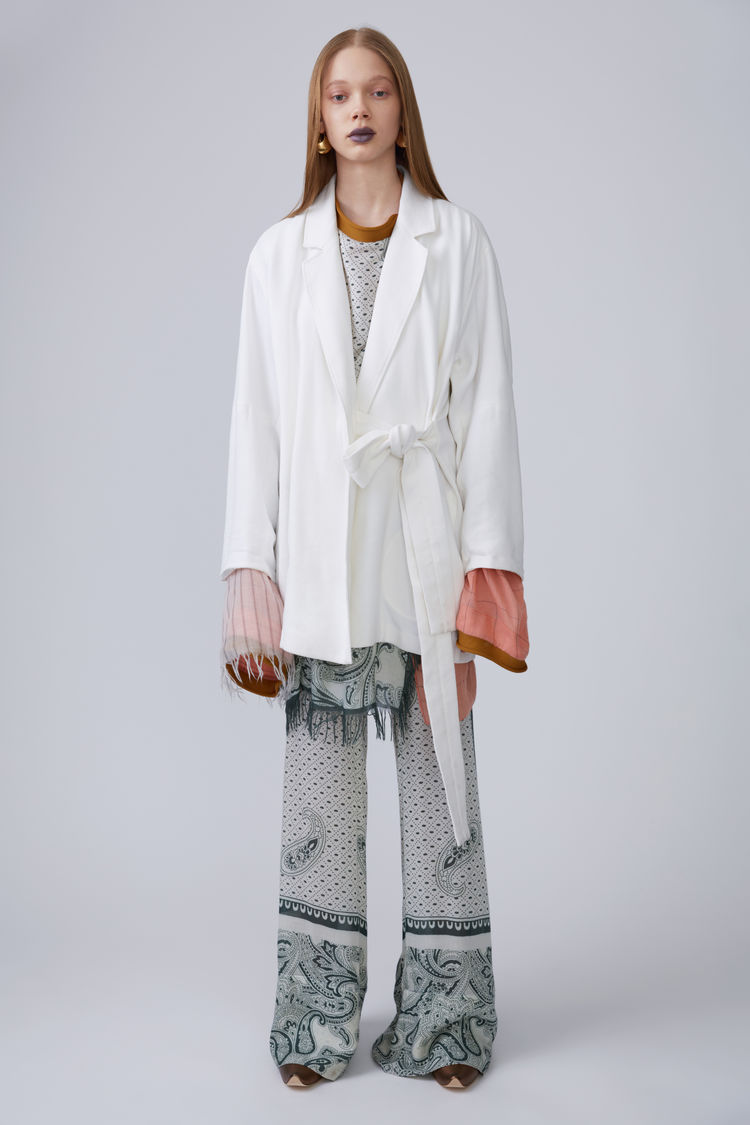
Jacket here
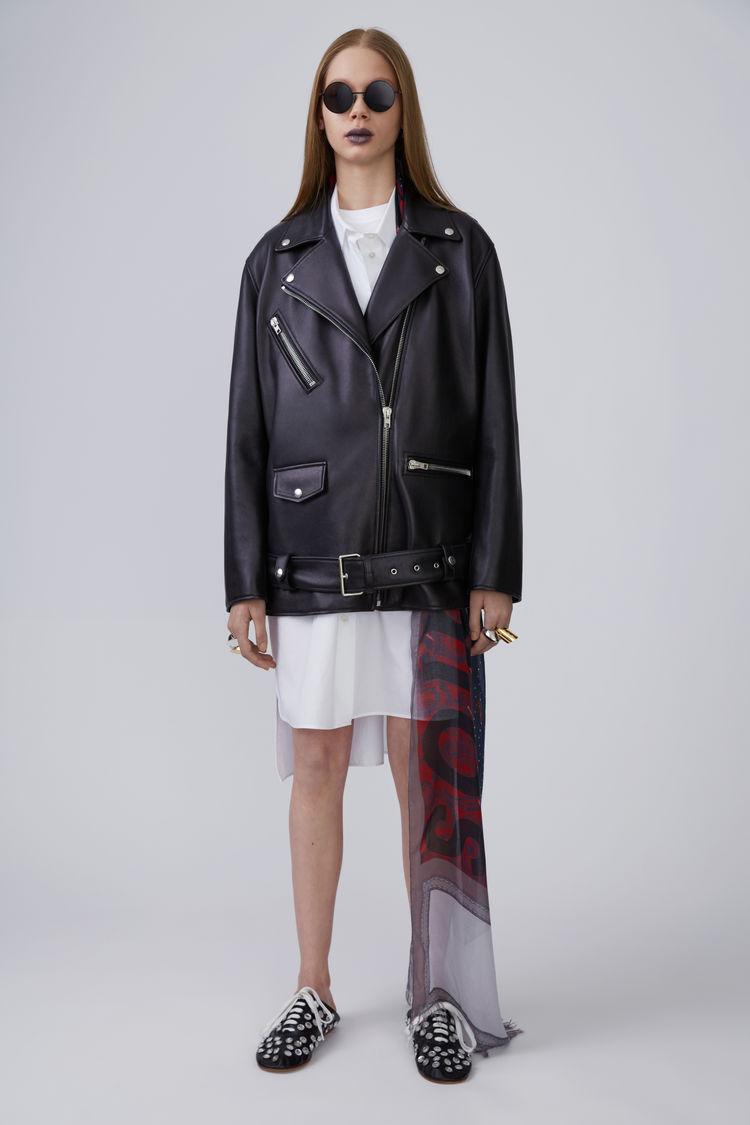
Biker jack here
This Swedish brand is one of my favorite brands out there. They focus on details, tailoring, and their use of fabric is incredible. I like their simple silhouettes and their structured design, which makes the outfit look luxurious in minimal way.
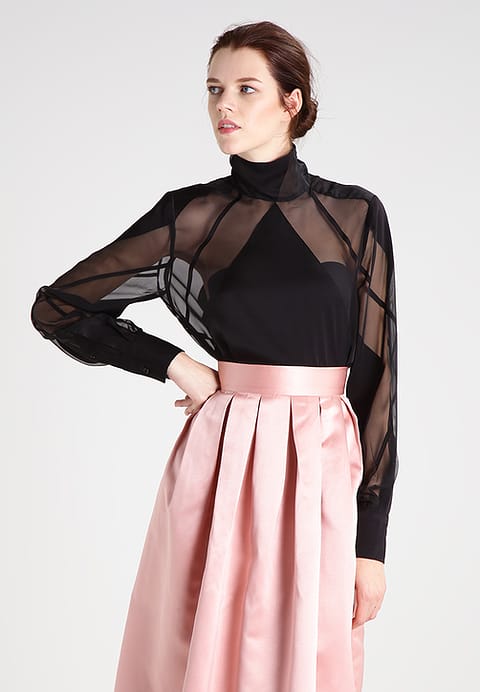
Blouse here (adlink)

Trousers here
The Swedish fashion brand, based in Stockholm, like to go outside of the obvious with their design, which I feel makes their clothes look interesting, new and fresh. Their style is a bit more street and edgy but still simple and with subtle colours.

(adlink) Trousers here // Blouse here

(adlink) Blouse here
This brand is a digital fashion house from Sweden. The famous fashion blogger Kenza Zouiten is one of the founders of Ivy Revel, and my go to influencer when it comes to fashion. Ivy Revel focuses on contrasts, contemporary fashion and their style is very polished and feminine with attitude. In 2016, the fashion empire H&M, made an investment in to the up and coming brand.


Jeans here
A Swedish online store offering clothes, shoes, accessories and interior. Their style is clean, simple and casual chic, whit a bit feminine feeling to it. This company has grown significantly the last two years and keeps delivering time after time. Worldwide delivery!

(adlink) Blouse here / Trousers here

I keep falling for this brand more and more over the years. At this point, it has made its way up to the top of my list of Scandinavian Designers. I love their minimal and elegant silhouettes with bold details and timeless designs.
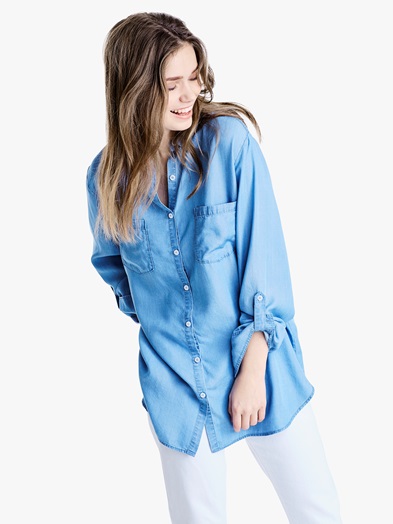
 Blue denim shirt here // Hamburger sweater here
Blue denim shirt here // Hamburger sweater here
This Norwegian brand was first created with the intention to create fashionable jeans for young girls but quickly gained popularity only to evolve into creating entire collections. They represent a flawless Scandinavian street style with an edge of attitude added into it.

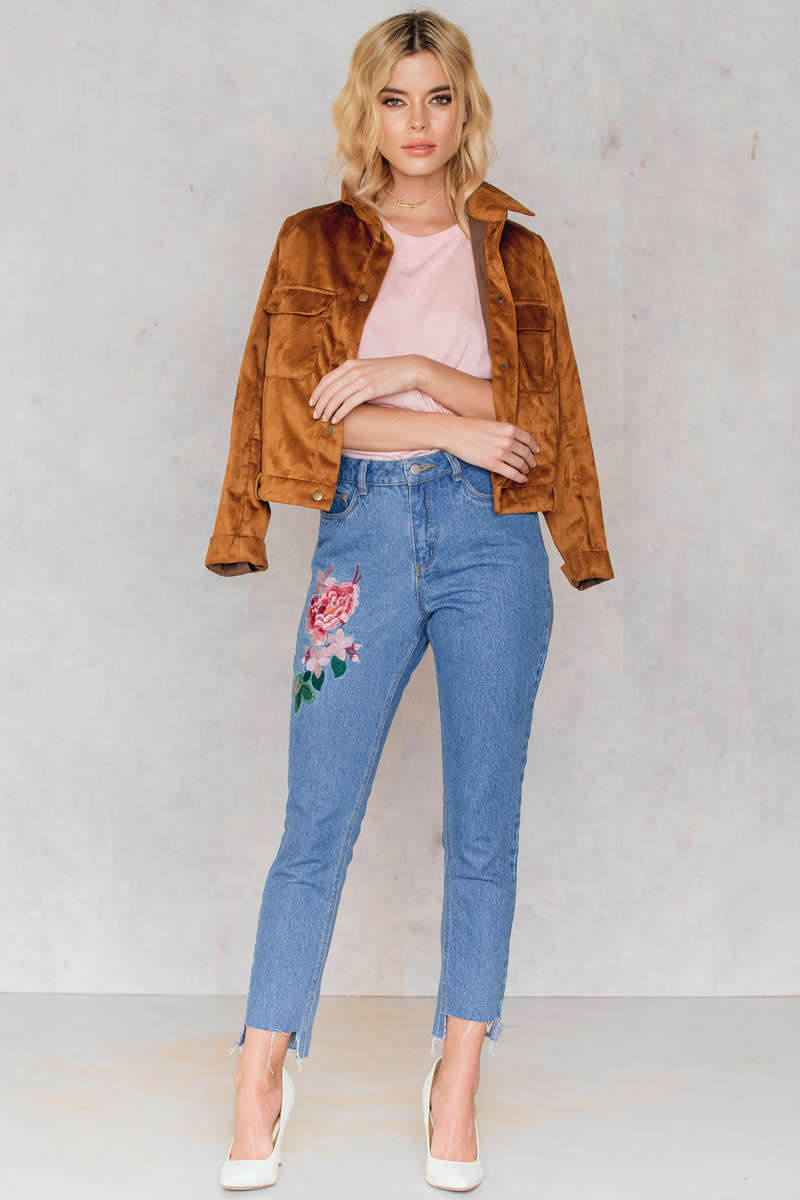
Another Swedish online store that I personally feel just exploded in Scandinavia and took over the fashion market significantly. I love their clothing and their style. It’s very Scandinavian in a fresh and young way. They have clothing, footwear, accessories and lifestyle products.


This Norwegian brand is a brand I recently found, and I love how comfortable their clothes are. They aim for casual chic and cozy pieces, which I absolutely adore. Who doesn’t want to feel chic while in comfortable clothing? Win-win!

Blouse here
 Dress here
Dress here
This brand was founded in New York by a native Swede, Carin Rodebjer. Quoted on Rodebjer’s webbsite ‘’ Signature silhouettes include slouchy suits and sets, drapey caftans and easy-to-wear dresses and kimonos – clothes that easily moves from day into night and from work to leisure’’. I like this style since it has the Scandinavian style with an influence of the New York fashion, great combo!


Wedding season is officially upon us. Are you looking for people to drop their jaw by seeing you in your wedding gown, evening gown or any sort of gowns for that matter? Then you must go check Ida Lanto’s dresses. They are beyond fabulous! She uses a lot of lace with delicate embroideries and flowing silk. The open detailed back ahas become her signature. You will feel unique and you will fall in love with this new Swedish brand right away!

Dress here
I’m in love with this brand, I really fell for Elina Casell’s way of playing with different fabrics, and the clean, sleek designs are just amazing. You will find everyday clothing to evening wear in her online store, every piece aiming to make you look minimalistic cool with a bit of edge to it. We also can’t get over that black leather dress.
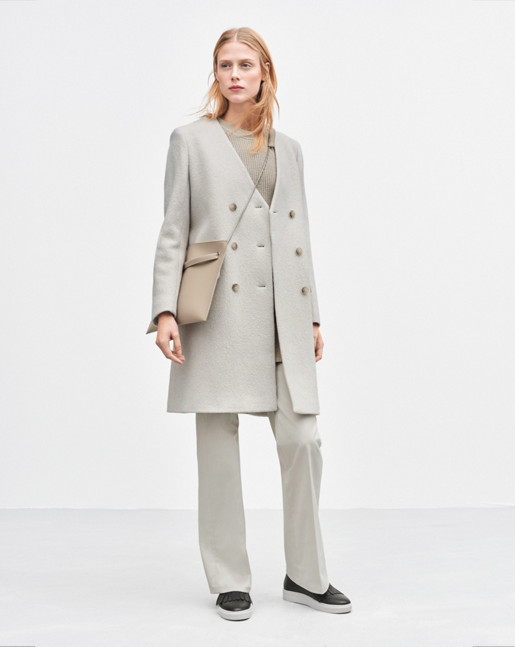
Jacket here

(adlink) Byxor here
This brand consists of womenswear, menswear, shoes and accessories and a soft sport collection. Its design is very classical with craftsmanship and Scandinavian minimal modern style. I love that they have added a sports collection, since active wear is big right now. If you want to find classic and timeless clothes, Filippa K is the way to go!
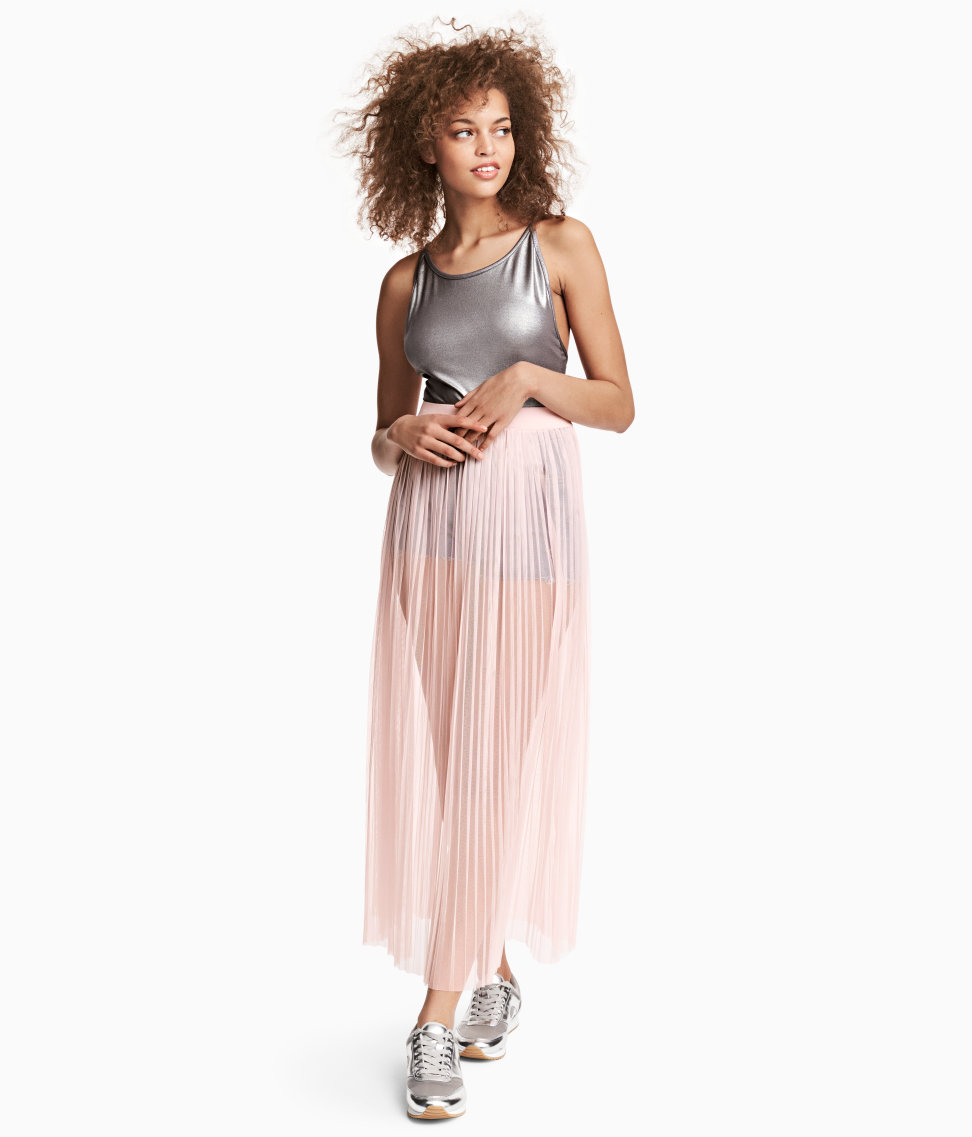

Denim dress here
I guess this company really doesn’t need much of an introduction, but I still want to mention them on the list because they ALWAYS are on top of their game. They offer fashion with quality at the best price in a sustainable way. With everything for women, men, teenagers, children and the home. It’s all from ready-to-party outfits to different collaborations with designers, all they way to the basic clothing. Swedish women love their H&M.
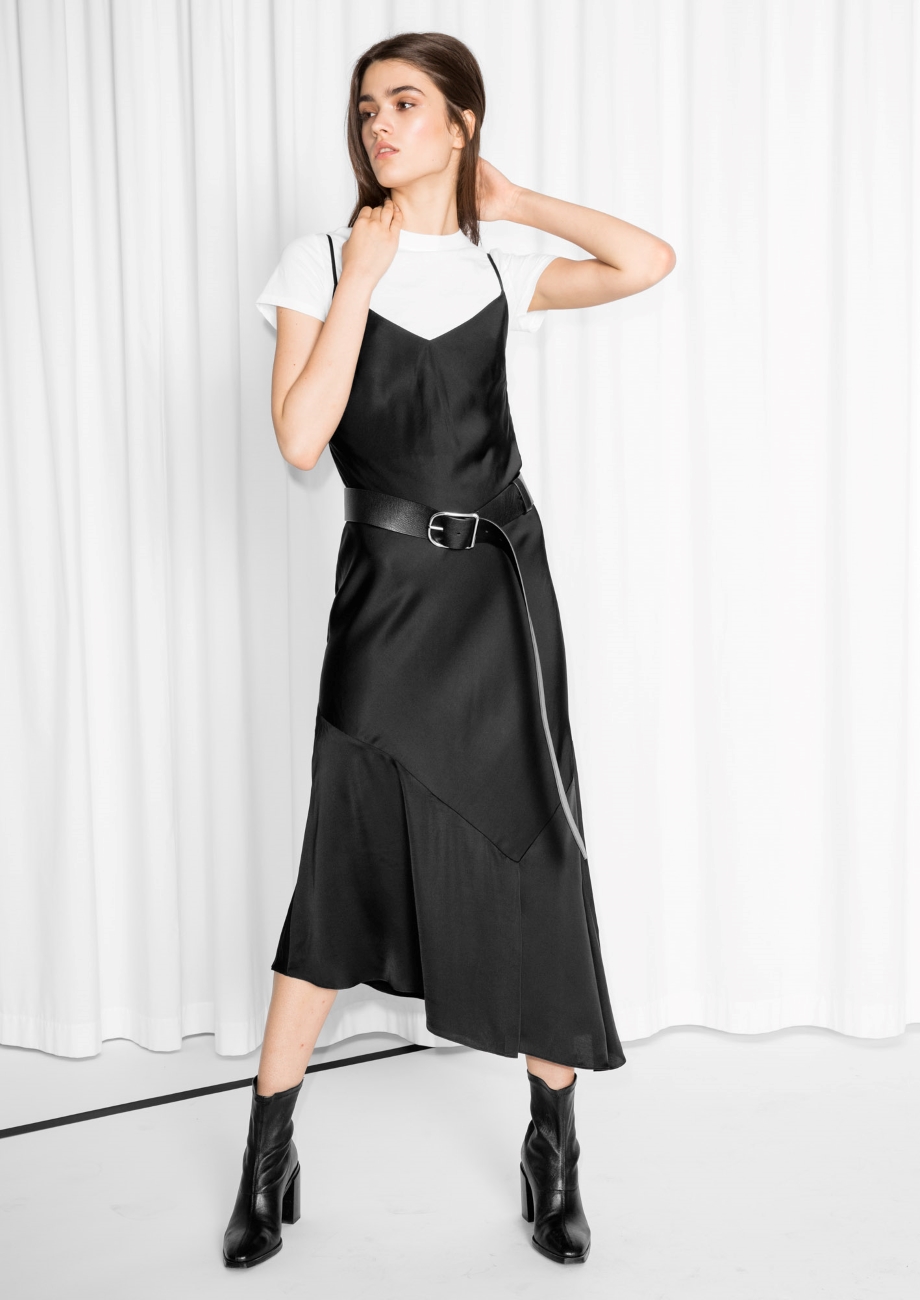

The I love most about this company is that they do a lot of collaborations with different designers and the results are awesome. Which means that with every collection the style varies depending on, who they are collaborating with. I love that idea!

Blazer dress here
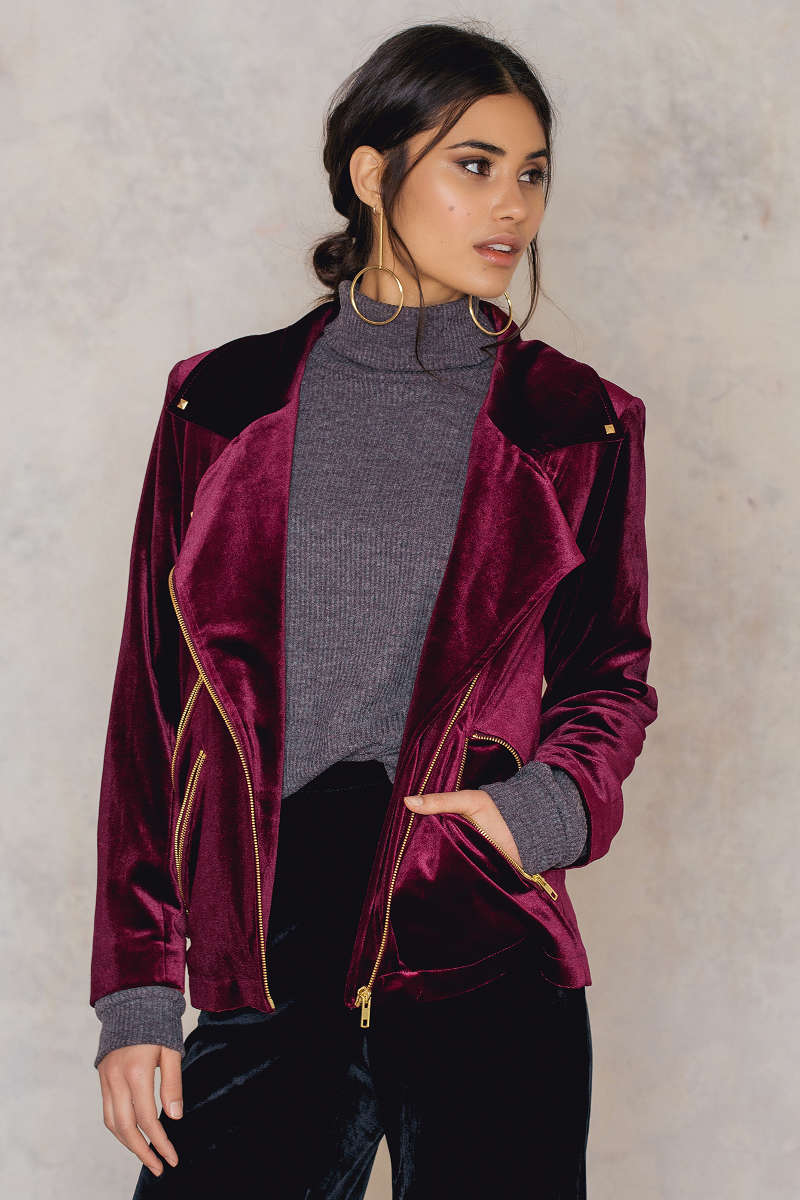
Velvet jacket here
This is just so great! This design is modern, young, fresh and very fashionable. I love that she has been using denim and velvet a lot. It’s a lot of stylish and up to date everyday clothing.
Flattered
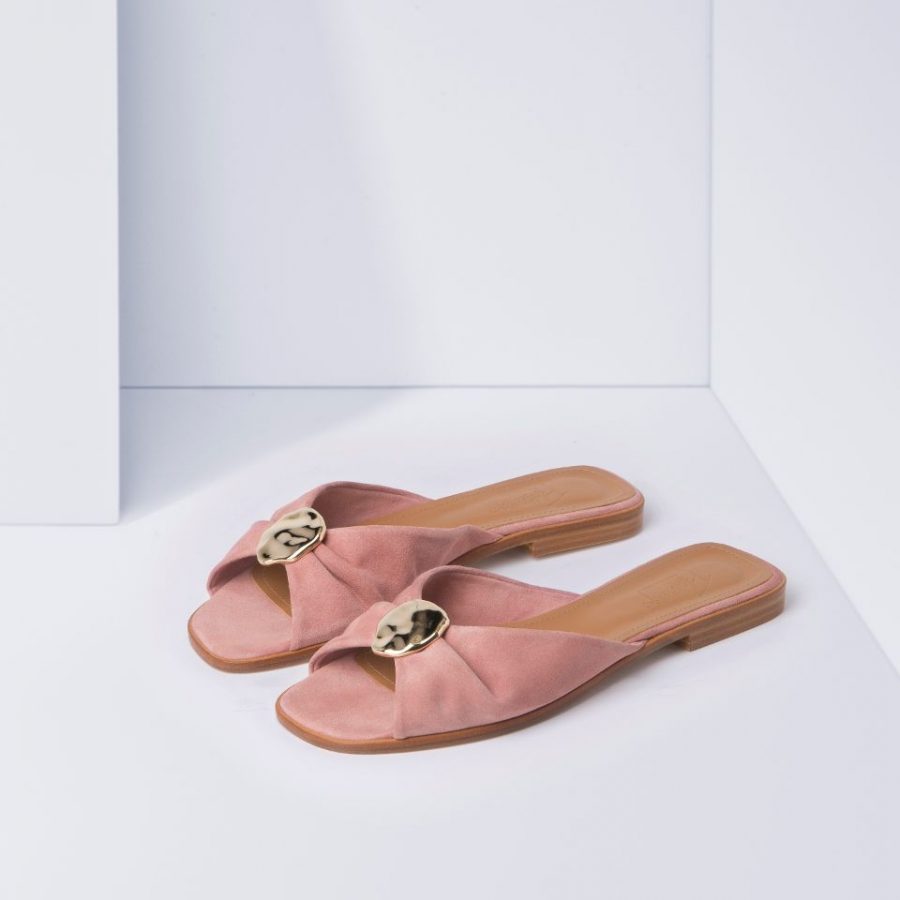
Pink Suede Sandal here
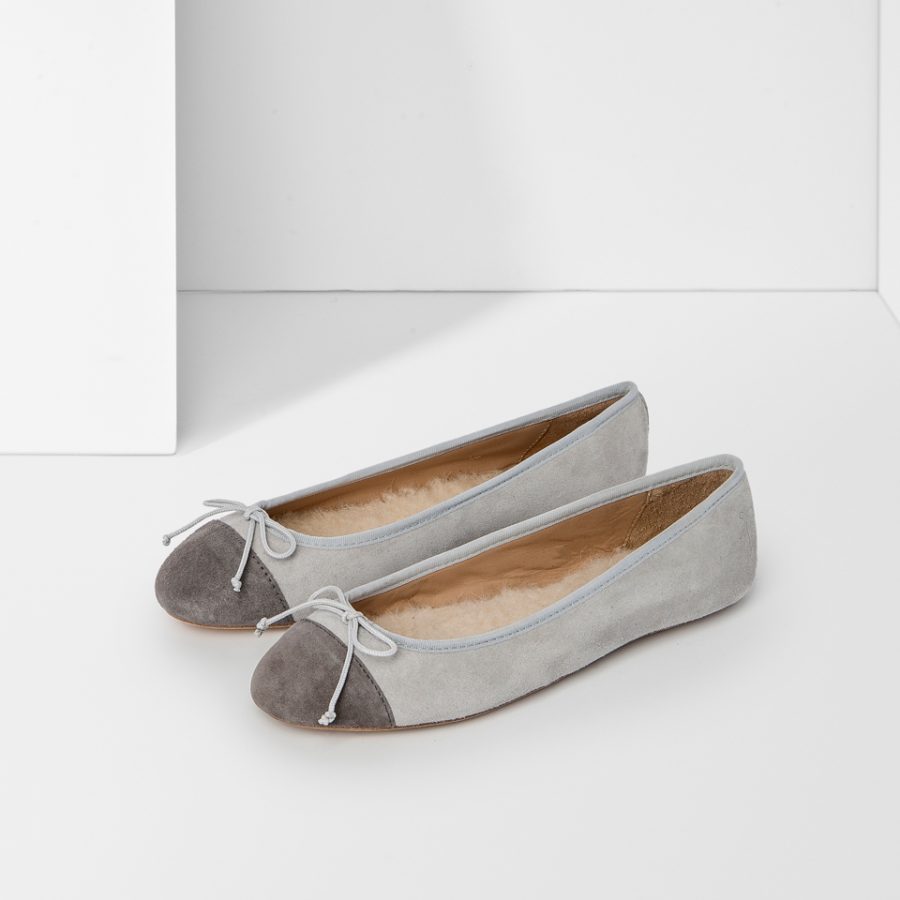
Indoor Suede Ballerinas here
This Swedish brand wanted to create the perfect flats for indoor use. They offer many different sorts of flat shoes for the modern and independent women. Their signature almond-shaped toe has a clean and a classic look, which also became Flattered’s signature trademark. Their shoes are cute and feminine and is a perfect complimentary detail to any indoor outfit.
Two years ago, I enlisted voluntarily to the Swedish army, but after close consideration of what incentives were, I ended up looking for a brighter future. After a few months in America, it has become obvious to me why I made that choice: the Swedish military presents no incentives for any young individual seeking reward for risk.
In a time when Russian geopolitical aggression has put Sweden’s military capacity to question, the Swedish government just recently choose to impose its long forgotten mandatory military conscription. With severe lack of funding and without practical resources to meet the increased level of military threat in the Baltic Sea region, the government’s policy comes as merely symbolic reaction to realizing its military capacity does not meet its needs.
The new policy means that at least 4000 out of 100 000 Swedes born 1999-2000 will be enlisted to do their mandatory military service during 2018 and 2019. Although a much larger number of recruits would be necessary to meet the critical demand of military personnel, neither the current funding or infrastructure allows for more recruits. Subsequently, the amount of recruits prone to the conscription accounts for only a minimal part of the projected demand.
However, the reason behind a mandatory service policy can be drawn from not only Russian military build-up but equally importantly the lack of incentives for young citizens to enlist voluntarily. Low early career wages, low reward relative to risk and lack of patriotism within a generation that has never had to ask what they can do for their country, but ask solely what their country can do for them, are all contributing factors to why teenagers are less interested in service than what the older generation is.
There is a fundamental difference between the two factors demanding more military recruits: Russian threats cannot be regulated. However, so can military personnel wages, service reward and pride to the profession. The problem with the government’s policy is thus that none of the factors it can control are being changed.
As the lack of incentives for young Swedes to join the military remains an unsolved problem, the government has announced that motivation and appropriateness should determine an individual’s enlistment. If this would hold true, a reasonable initiative to increased public interest in military service would be to drastically increase military wages to reflect the government demand and an individual’s risk.
As the mandatory service among young Swedes is seen somewhat as being forced to do something of little value to them, resistance to voluntary enlistment can only be dealt with should incentives be created. This is where Sweden should take lesson from the incentives today’s American military presents to its various kinds of recruits.
The U.S military present unparalleled incentives for young individuals of all backgrounds. A personal observation from the University of Illinois at Urbana-Champaign is the Reserve Officers’ Training Corps (ROTC) program, offered at over 1,700 colleges and universities across the U.S. The ROTC prepares young students to become officers in the military, allowing students to go through partly but not exclusively academic military training in college to become the next generation of military leaders within the three branches: Army, Navy or Air Force. The program at Illinois is highly popular and the reason for it is obvious: every Illinois state resident that goes to an in-state school and joins ROTC gets free tuition.

The military will pay for your tuition if you commit to serve for four years post-graduation. The academic and physical military training ROTC students go through is tough, yet students from all backgrounds have real incentives to pursue the incentivized path to a career as military leaders.
The ROTC is a purposeful way for the military to gain access to a pool of well-educated graduates from top colleges over the U.S, laying the foundation for a military founded on professionalism and excellence – a resource being neglected by the Swedish government when employees are undervalued. In addition, any college graduate outside the ROTC also have the opportunity to take the fast track to becoming an officer.
The Swedish and American welfare systems have little in common, yet the incentives presented to young Americans gives us an example of how individuals’ incentives can help solve governments’ policy goals. There is a wide array of benefits for U.S military personnel that the Swedish government could take lesson from. Any U.S military service member, officer or not, can expect benefits exceeding most FORTUNE 500 companies – pay, medical care, education and tax reliefs being a few.
In comparison, the U.S benefits may be seen as relatively marginal because many of them are already fully tax-funded and accessible to all Swedes. But as the Swedish military is failing to meet its goals, the efficiency of financial incentives to meet policy goals talks for itself. Because of the logic based on that the U.S benefits only cover up for what is already provided in Sweden, personal tax reliefs for Swedish service members, combined with higher pay, are a critical part of increasing the number of young recruits.
Sweden needs to impose tax reliefs and increase salaries for its military members as two instruments to meet policy goals. Even if this could result in higher costs, the Swedish government must come to conclusion that the current spending levels are insufficient to meet its own goals, making its latest mandatory conscription policy merely symbolic.
Because the demand of new recruits to the Swedish military can only be projected to increase the coming years, an incentives-based system must be put in place. There are areas where the U.S could learn from Sweden, but the military is not one of them.
A.P
Sources:
Sweden re-activates conscription, Government Offices of Sweden
http://www.government.se/articles/2017/03/re-activation-of-enrolment-and-the-conscription/
ROTC Programs
http://todaysmilitary.com/training/rotc
Sweden Reinstates Conscription, With an Eye on Russia, New York Times, 2 March 2017
https://www.nytimes.com/2017/03/02/world/europe/sweden-draft-conscription.html?_r=0
As Stockholm was struck by its first deadly Islamic terror attack, policy professionals has increasingly started to claim the disaster’s occurrence was only a matter of time. Officials say it was not a question if, but when, Sweden would be struck by an act of terror. However this statement is true or not, it remains a sad day for Swedes looking back at a country forever changed on April 7th 2017.
The aftermath chaos witness how the Swedish people can mobilize to stand up against terror attacks. People showed endless compassion in supporting each other through the crisis, with many homes being opened to complete strangers under the hashtag #openstockholm. When some of the functions of society became crippled, such as all public transportation and parts of the cellular net being shut down, this was an effort by the many civilian men and women working side by side to get to safety.
It is said that the danger of terrorism lays not within the actual attack, but in how we respond to it as a society. This could also be divided into two parts, one being the continued Swedish values reflected in peoples’ general attitudes to our neighbors, and one being the impact on public policy. Naturally, no one knows the answers to these questions yet.
Right after the attack, I noticed one person’s comment on the well-known Swedish political commentator Marcus Oscarsson’s post about the police’s outstanding work during the attack. Translated, it reads: ‘’To all who have seen, been on location, ran, and been worried can also think about the policemen with a salary of 24,500 SEK per month that ran the other way, against the attack, to protect us!’’. The comment has during the last 24 hours received nearly ten thousand likes and should be seen as an indicator of not only the brave policemen but the many challenges facing Sweden’s failing security net, due to the lack of resources they need.
The worries about what the implications will be are many, and in countries where past deadly attacks have been carried out, public security measures have become a top priority. These measures vary from everything between increased anti-terror intelligence activities to roadblocks in crowded city zones.
The immediate response by media to the attack proved to pose questions about what the impacts will be for Swedish society. In several papers, the answers have been that the impacts depend solely on how we, the Swedish people, decide to tackle the challenges coming from a modern society of multiculturalism and international mobility.
Countries previously struck by terror have taken various approaches to ensure public security, and people’s attitudes have forever changed. However, while some argue that no security budget is great enough to prevent future attacks, the only rational solution from now on is to take responsibility for those factors giving officials a reason to state that it was only a matter of time before this attack would occur.
While some argue that efforts should be made to ease conflicts abroad, often identified as the source of these radical acts of hatred, it is fundamental that resources are allocated to the law enforcement. The debate on Sweden’s insufficient funding to its police force, with many policemen reportedly leaving their jobs because of increased pressure, can no longer be left without politicians support. Sadly, preventing Islamic terrorism has now become the top priority in Sweden, too. While the Swedish society cannot give in to the terror by letting fear dictate our actions, we must reinforce our fundamental values of democracy, trust and openness with a functioning law enforcement.
As the suspect is one of 12,500 other undocumented immigrants who have been denied asylum but has disappeared from authorities’ radars, there are structural problems with Sweden’s dysfunctional immigration and legal system that have been exposed. The large scale failure of the authorities and politicians to uphold rule of law is likely to be addressed as a reaction to the suspect’s illegal residency in Sweden. Many public figures call for calm, but responsibility can only be taken through rapid and reasonable policy solutions that have been missing. If this attack was only a matter of time, why was not more done to prevent it? Obviously, enough resources has not been allocated to keep the Swedish immigration system functioning.
Radical Islam being the highest prioritized threat to Sweden’s national security is officially recognized and not a surprise by any standard. International media has long time ago highlighted Sweden’s so-called export of jihad, being one of the biggest exporters of Jihadists in Europe. While this could be prevented by policy measures aimed at fighting terrorism, the opposite has been done by the government. When policy discussions are now being initiated, the Sweden Democrats – Sweden’s third largest political party – are not being invited to participate. The government argue that the Sweden Democrats do not support the national strategy against extremism and should thus not be invited to the discussions on the country’s policy changes. What the consequences excluding the Sweden Democrats might be can only be told by future polls and the upcoming 2018 election.
Sweden has every ability to work against terrorism motivated by Islamic extremism. It doesn’t help much to be upset about what could have been done. First we must do what most people think should be done, and inviting the Sweden Democrats to the policy talks would be a major first step to acknowledging effective anti-extremism policies. While our society may not be able to fully prevent any act of terror, we should ask ourselves: in what areas could we have done more to prevent an attack?
If we do not take measures now, another terror attack is only a matter of when.
A.P
http://www.cnn.com/2017/04/08/europe/sweden-stockholm-truck-attack/index.html
This website uses cookies so that we can provide you with the best user experience possible. Cookie information is stored in your browser and performs functions such as recognising you when you return to our website and helping our team to understand which sections of the website you find most interesting and useful.
Strictly Necessary Cookie should be enabled at all times so that we can save your preferences for cookie settings.
If you disable this cookie, we will not be able to save your preferences. This means that every time you visit this website you will need to enable or disable cookies again.
